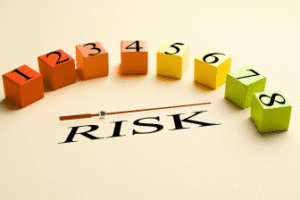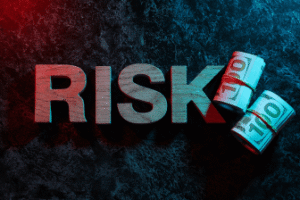
How a Risk Management Class Boosts Your Career
How a Risk Management Class Boosts Your Career
Organisations today face increasing uncertainty — from financial threats and cybersecurity risks to compliance issues and operational disruptions. This growing complexity has made risk management one of the most essential business functions across industries.
According to the World Bank Business Pulse Report 2025, more than 60% of organisations in emerging markets consider enterprise risk management vital for operational resilience and investor confidence.
For graduates and working professionals, pursuing a risk management course offers an excellent opportunity to develop practical skills and achieve long-term career growth. A structured risk management class strengthens analytical and strategic thinking while equipping learners with the capabilities that employers seek in today’s unpredictable business environment.
Let’s explore how enrolling in a risk management course in 2025 can help you enhance your career prospects.
Increased Demand for Risk Management Professionals
With constant economic volatility, regulatory changes, digital disruption, and emerging technologies, organisations are focusing on stronger risk frameworks. This shift has created growing demand for professionals trained in recognised risk management courses.
From banks and global corporations to consulting and technology firms, employers seek individuals who can identify, assess, and mitigate risk effectively.
A risk management class helps you understand different types of risk — financial, operational, strategic, and reputational — and their influence on business performance. Professionals who master these skills often move into leadership and decision-making roles, as their expertise strengthens organisational resilience.
Key Advantages of Enrolling in a Risk Management Programme
A formal risk management programme offers more than theoretical learning — it builds real-world problem-solving abilities. Students learn how to:
- Identify potential threats and vulnerabilities within organisations.
- Quantify and prioritise risks through analytical methods.
- Design mitigation and contingency plans.
- Integrate risk management into corporate strategy.
Through case studies, simulations, and live projects, these courses bridge academic theory with professional application. Graduates are ready for diverse roles in banking, insurance, consulting, and even tech start-ups.
Improved Employability and Career Growth
Employers increasingly value candidates who can think critically, make data-driven decisions, and handle crises with confidence. A risk management qualification adds credibility to your profile and proves your readiness to perform in uncertain conditions.
The Indian risk management industry is expected to grow at a CAGR of over 15% by 2027, driven by rising regulatory focus, cybersecurity needs, and enterprise governance reforms. (Source: NASSCOM & EY India, 2024)
With a certification or diploma in risk management, you can pursue roles such as:
- Risk Analyst
- Compliance Officer
- Financial Risk Consultant
- Operational Risk Specialist
- Enterprise Risk Manager
Risk management careers offer strong advancement potential and competitive salaries, as organisations see skilled risk professionals as key strategic assets.
GRMI: A Leader in Risk Management Education
In India, the Global Risk Management Institute (GRMI) stands out as a pioneer in professional risk education. GRMI has built a reputation for developing courses that align closely with industry needs and prepare students for practical business challenges.
Its flagship Post Graduate Diploma in Risk Management (PGDRM) is a one-year intensive programme combining classroom learning with industry exposure. Designed with input from global risk leaders, the PGDRM offers students access to case studies, simulations, and live corporate projects.
Learners gain hands-on experience with governance, compliance, and enterprise-wide risk frameworks, ensuring they graduate as confident, capable professionals ready for global roles.
PGDRM at GRMI: A Pathway to Leadership
The PGDRM is ideal for individuals looking to strengthen their expertise or transition into risk management. The course builds a deep understanding of financial, operational, strategic, and emerging risks, along with practical tools to address them.
Highlights of the PGDRM Programme
- Industry-Focused Curriculum: Covers financial, cyber, and enterprise risk comprehensively.
- Practical Exposure: Real-world projects and case studies guided by industry mentors.
- Global Faculty: Courses taught by experienced risk professionals, authors, and experts.
- Career Support: Dedicated placement guidance connecting students with top employers in India and abroad.
What makes the PGDRM unique is its emphasis on developing holistic risk leaders. Graduates gain the ability to analyse data, make strategic decisions, and enhance business resilience across industries.
Short-Term Learning Options for Professionals
For working professionals unable to commit to full-time study, GRMI also offers short-term certificate programmes in specialised risk areas. These include financial risk, compliance, and cyber risk.
Such programmes allow professionals to upskill without leaving their current roles. They also help individuals stay relevant as new challenges — such as ESG and AI-driven risks — continue to evolve.
Why 2025 Is the Time to Start
The year 2025 marks a turning point in the global business environment. Companies are still adapting to post-pandemic realities, rapid digital transformation, and increasing market volatility.
Organisations now need professionals who can foster a culture of risk awareness and develop systems that improve resilience.
By joining a risk management certificate course now, you’ll equip yourself with future-ready skills that are valuable in traditional risk roles as well as emerging areas like fintech, data analytics, sustainability, and governance.
Conclusion: Move Forward with GRMI
In a fast-changing business world, understanding and managing risk has become a vital leadership skill. A risk management diploma helps you foresee challenges, reduce losses, and support organisational stability and growth.
The Global Risk Management Institute (GRMI) offers India’s most comprehensive and industry-aligned Post Graduate Diploma in Risk Management (PGDRM). Whether you choose a full diploma or a short certificate course, GRMI ensures you gain both theoretical knowledge and practical expertise.
If you choose to study with GRMI in 2025, you will not just learn about risk — you will learn how to lead with confidence, resilience, and strategic vision in uncertain times.
FAQ’s
Q1: What does a profession in risk management entail?
Ans: Professionals in risk management are in high demand in the banking, consulting, technology, & manufacturing industries. They guarantee business continuity and expansion by assisting businesses in identifying and reducing risks.
Q2: Who is eligible to sign up for a risk management course?
Ans: Any discipline’s graduates are eligible to apply. Students studying business, finance, economics, or commerce, as well as professionals hoping to advance into leadership or analytical positions, will find it excellent.
Q3: What is the duration of a diploma programme in risk management?
Ans: The majority of postgraduate risk management degrees, including the PGDRM, are one-year courses that combine classroom instruction with hands-on training.
Q4: How does GRMI’s PGDRM differ from other courses in risk management?
Ans: The PGDRM at GRMI combines theory with practical projects, real-world case studies, and industry experts’ mentoring. Strong corporate connections and placement assistance are also provided.
For any queries please fill the form
You may also like

Which careers are truly safe from layoffs in 2026?

What Are the 3 Types of Credit Risk?


